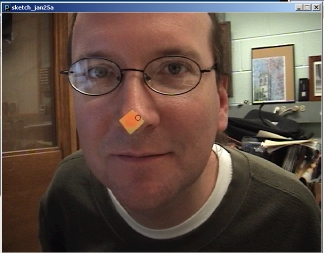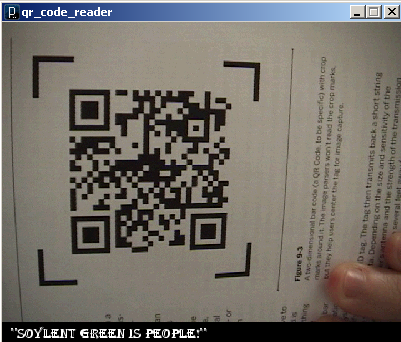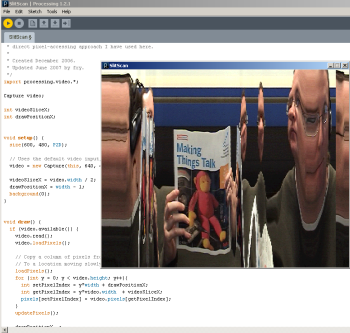I won't get into the long-recognized shifting of the Sun's position and the calendar with regards to the zodiacal signs--as someone who has done a lot of astronomy astrology is one of those things that is like asking a chemist about alchemy--the rolling-eyes chemist can't believe the general public believes you can turn things into gold.
But Allstate, a statistical insurance companies with many many actuaries and other employees incredibly well-versed in mathematics, put out a press release (no longer available) claiming new Virgos were the worst drivers. The Chicago Tribune then put out a story on the press release. The new Ophiuchus was the best driver.
Now, for the shockingly bad details--whomever at Allstate failed to normalize the fact that the new signs have really different lengths--the Sun being in Virgo for a long time as it's a longer constellation (45 days) versus the short 6 day dip in Scorpio. Neither did the Tribune do its diligence in fact-checking this story, leaving it to an anonymous commenter to point out the utter stupidity of it.
I expected better from Allstate. You should have a few of the statisticians on your payroll take the PR people and their management for a little talk. You've lost the confidence of many customers who might know a little science or math, and it's embarrassing to have a company 1. Give a statement in a press release about astrology and 2. Completely get the numbers wrong. I also expected more from the Tribune press--unfortunately it appears companies can just put advertising up for free, caged as PR, and the newspaper will call it a story straight.
Saturday, January 29, 2011
Tuesday, January 25, 2011
Making Things Talk & Processing projects
I got Making Things Talk as a gift from a great friend of mine and I just ran two of the projects in the "Identification" chapter.
To start off, you install Processing, a free language for visualization. For me the download for Windows was here. It's a slightly different install process than usual; just make a directory like "C:\Program Files\processing-1.2.1" and dump the contents there, and make a shortcut to processing.exe somewhere convenient for you (or you will forget it's installed).
Then in order to do video things you first need to have quicktime installed; if you have iTunes then you've got quicktime. And, finally, you need a VDIG implementation; for Windows it is WinVDIG. Install version 1.01 from here.
The first project was finding a particular color in a webcam image, reading the color, then putting a pointer on that spot.

Hey it works! See the dot on my nose?
The screenshot misses the dynamic aspect of the little dot following you around.
The second project was using your imager to decode QR Codes--and ha ha, check out the sample from the book. Nice one, Tom Igoe.

Great stuff.
P.S. I just loaded the 'slitscan' example from the Processing examples. Ha!

To start off, you install Processing, a free language for visualization. For me the download for Windows was here. It's a slightly different install process than usual; just make a directory like "C:\Program Files\processing-1.2.1" and dump the contents there, and make a shortcut to processing.exe somewhere convenient for you (or you will forget it's installed).
Then in order to do video things you first need to have quicktime installed; if you have iTunes then you've got quicktime. And, finally, you need a VDIG implementation; for Windows it is WinVDIG. Install version 1.01 from here.
The first project was finding a particular color in a webcam image, reading the color, then putting a pointer on that spot.

Hey it works! See the dot on my nose?
The screenshot misses the dynamic aspect of the little dot following you around.
The second project was using your imager to decode QR Codes--and ha ha, check out the sample from the book. Nice one, Tom Igoe.

Great stuff.
P.S. I just loaded the 'slitscan' example from the Processing examples. Ha!

Thursday, January 13, 2011
Monday, January 10, 2011
Two new trends to keep an eye on in 2011 and beyond: 3D printing and Mobile Security
3D printing and mobile security are two big trends to watch.
The next big thing will be 3D printing. It's a hobbyist field right now, with rudimentary designs and machines, but it's going to get better. What happens when you can replicate any physical thing? That part that broke on your dishwasher, your bike, or that toy--you will just make (or buy from some third-party) a replacement. You won't buy the part from the manufacturer (even if you could). Those cheap things that break and then you throw out? Why would you if it could be easily fixed for next to nothing from a machine you had under your desk?
The best approach to this emerging market is to keep it open, free from patents and IP, and let it flourish. Many organizations and business interests will attempt to get a stranglehold on the emerging field, and it's important not to let that happen, lest they stifle the innovation an open field offers. The Internet would absolutely not be what it was if large corporations controlled it.
Dan's Data has an interesting post about the future of 3D printing.
Mobile Security needs to be addressed. We sat with cellular phones in a controlled world with little to worry about, as the oligarchy of carriers strongly restricted what could be run on their phones and networks. That worked at the cost of innovation. The new world of open platforms on the smartphone now means maliciousness is around the corner if the native OS isn't correctly applying security features like sandboxing. We need phones; we use them all the time, all day, and we need to be able to summon people in emergencies. We can't let them break because of bad security. We need to be able to prevent mass Denial-Of-Service, worm outbreaks, malicious breaking of phone security, and surveillance on these devices. And it's not just having the carrier control the phone; mobile security is also about You having control and not letting Them (whether they are a cracker or a malicious app or the Carrier) reading your data.
(While mobile security needs to be addressed as an emerging issue, that in no way reduces the disaster of the current free-for-all in web plug-in security holes).
UPDATE: for instance this finding of SMS messages that can kill nearly any phone.
The next big thing will be 3D printing. It's a hobbyist field right now, with rudimentary designs and machines, but it's going to get better. What happens when you can replicate any physical thing? That part that broke on your dishwasher, your bike, or that toy--you will just make (or buy from some third-party) a replacement. You won't buy the part from the manufacturer (even if you could). Those cheap things that break and then you throw out? Why would you if it could be easily fixed for next to nothing from a machine you had under your desk?
The best approach to this emerging market is to keep it open, free from patents and IP, and let it flourish. Many organizations and business interests will attempt to get a stranglehold on the emerging field, and it's important not to let that happen, lest they stifle the innovation an open field offers. The Internet would absolutely not be what it was if large corporations controlled it.
Dan's Data has an interesting post about the future of 3D printing.
Mobile Security needs to be addressed. We sat with cellular phones in a controlled world with little to worry about, as the oligarchy of carriers strongly restricted what could be run on their phones and networks. That worked at the cost of innovation. The new world of open platforms on the smartphone now means maliciousness is around the corner if the native OS isn't correctly applying security features like sandboxing. We need phones; we use them all the time, all day, and we need to be able to summon people in emergencies. We can't let them break because of bad security. We need to be able to prevent mass Denial-Of-Service, worm outbreaks, malicious breaking of phone security, and surveillance on these devices. And it's not just having the carrier control the phone; mobile security is also about You having control and not letting Them (whether they are a cracker or a malicious app or the Carrier) reading your data.
(While mobile security needs to be addressed as an emerging issue, that in no way reduces the disaster of the current free-for-all in web plug-in security holes).
UPDATE: for instance this finding of SMS messages that can kill nearly any phone.
Subscribe to:
Comments (Atom)
